I am responsible for soft- and hardware at this institute.
You know, this is a never ending story and full of surprises.
Previously I was working as an administrator at university, as
a consultant and in an insurance company - mainly in software
engineering and implementation. Much of my actual work
belongs to genetic projects with the focus on software
solutions for scientific questions.
NEWS
2025-11-28
"Avian GCGR-mediated continuous fat utilization offers
perspectives for obesity treatment" by Zhang et al. has been
published by Nature Communications
View
2025-08-24
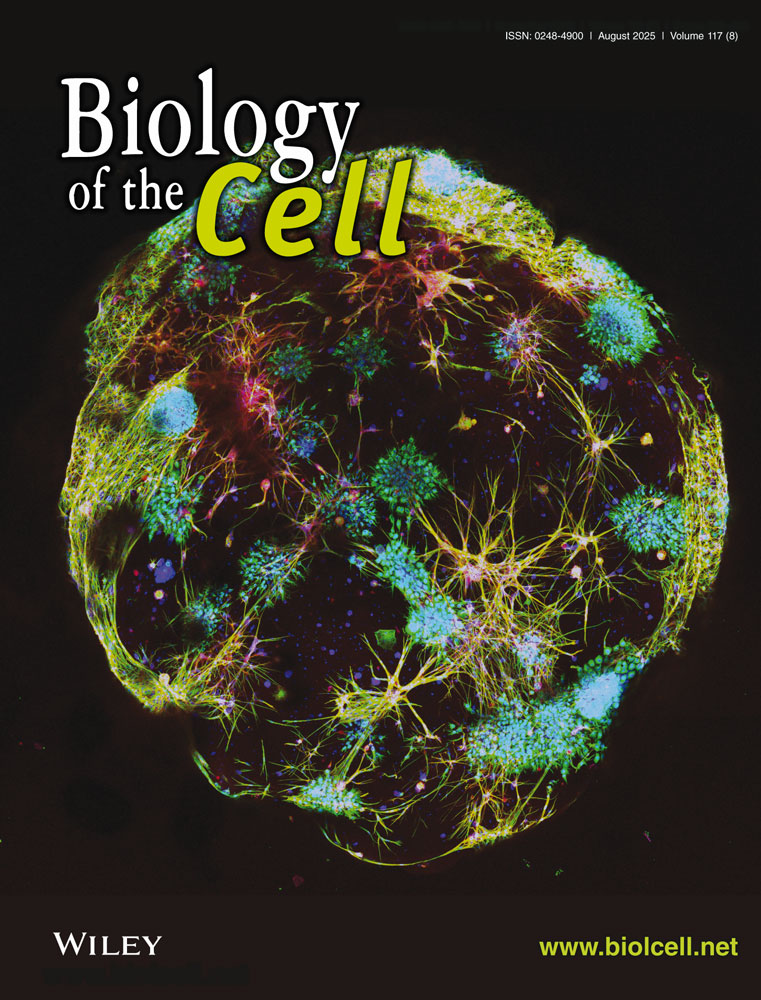
"The Synchrony of STARD4-AS1 and H19 Downregulation with Cardiomyocytes Cell Cycle Arrest"
by Sara Pahlavan, Eberhard Korsching, Sedigheh Gharbi et al.
has been published by "Biology of the Cell Journal"
View
2025-08-06

"Prognostic marker Musashi-2 modulates DNA damage response and radioresistance in diffuse large B-cell lymphoma"
by Fabian Troschel, Eberhard Korsching et al.
has been published by "Frontiers in Cell and Developmental Biology Journal"
View
2025-06-18
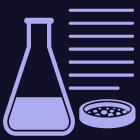
"Evaluating the Effectiveness of Various Small RNA Alignment Techniques in Transcriptomic Analysis by Examining Different Sources of Variability Through a Multi-Alignment Approach"
by Xinwei Zhao, Eberhard Korsching.
has been published by "Methods and Protocols Journal"
View
2025-03-21
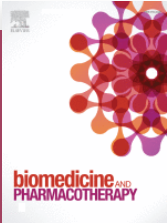
"Musashi inhibitor Ro 08-2750 attenuates triple-negative breast cancer cell proliferation and migration and acts as a novel chemo- and radiosensitizer"
by Fabian Troschel, Eberhard Korsching et al.
has been published by "Biomedicine & Pharmacotherapy Journal"
View
2024-12-31
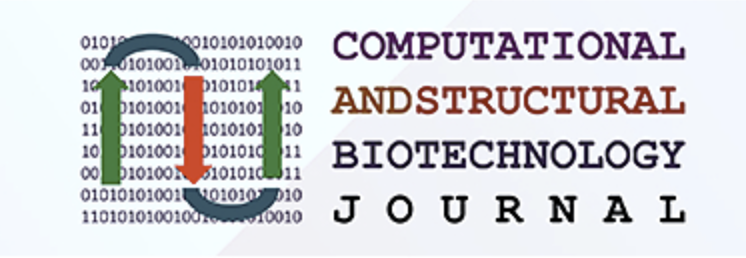
"Development of a new data management system for the study of the
gut microbiome of children who are small for their gestational
age" by Felix Manske, Norbert Grundmann, and Wojciech Makałowski
has been published by "Computational and Structural Biotechnology Journal"
View
2024-12-30
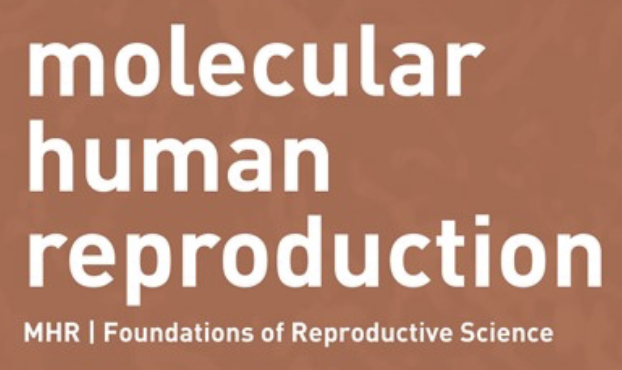
"Animal and vegetal materials of mouse oocytes segregate at first
zygotic cleavage: a simple mechanism that makes the 2-cell
blastomeres differ reciprocally from the start" by Thomas Nolte,
Reza Halabian et al. has been published by Molecular Human
Reproduction.
View
2024-12-19
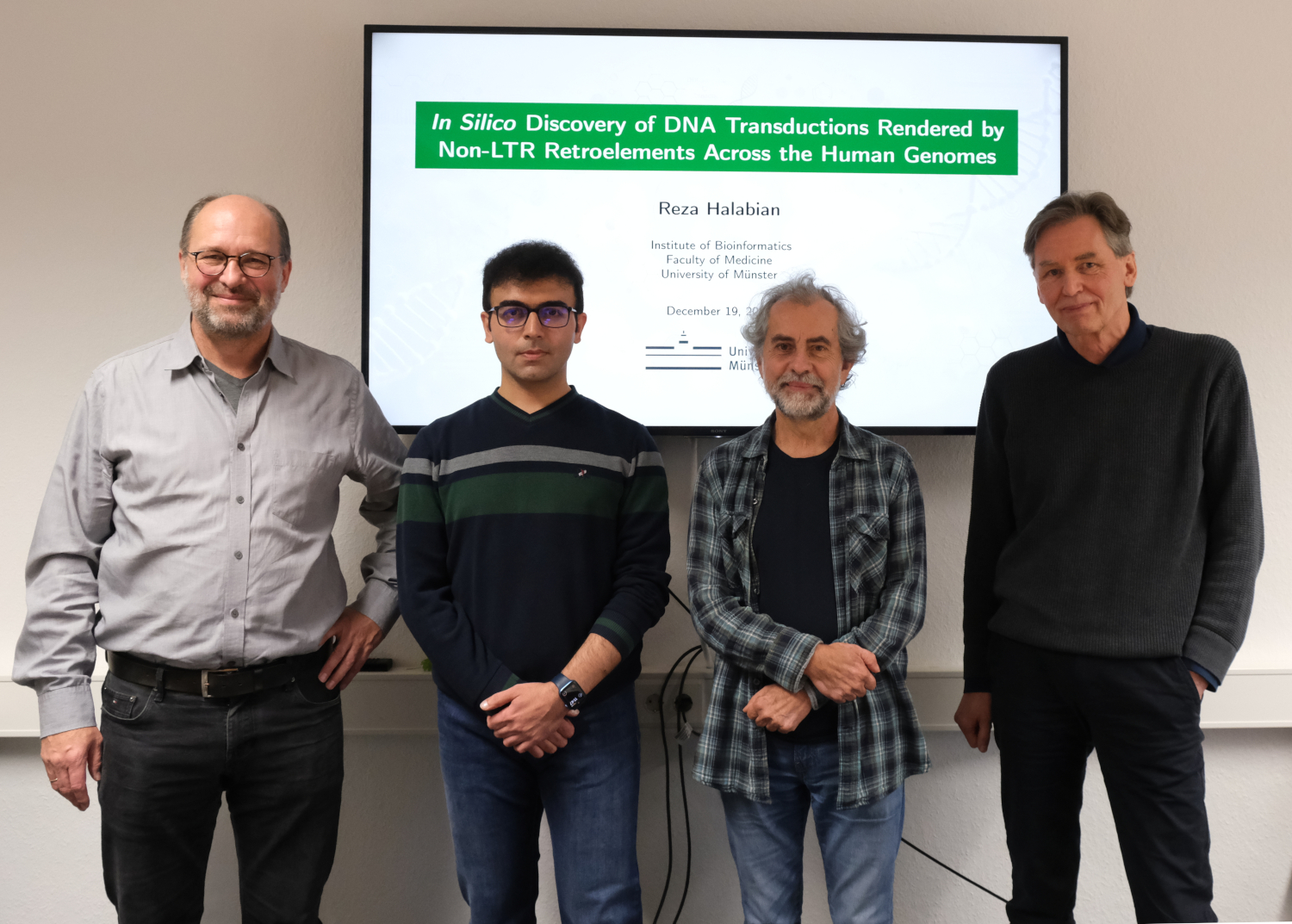
Congratulations to Reza Halabian for the succesful defense of his
PhD thesis.
2024-11-21
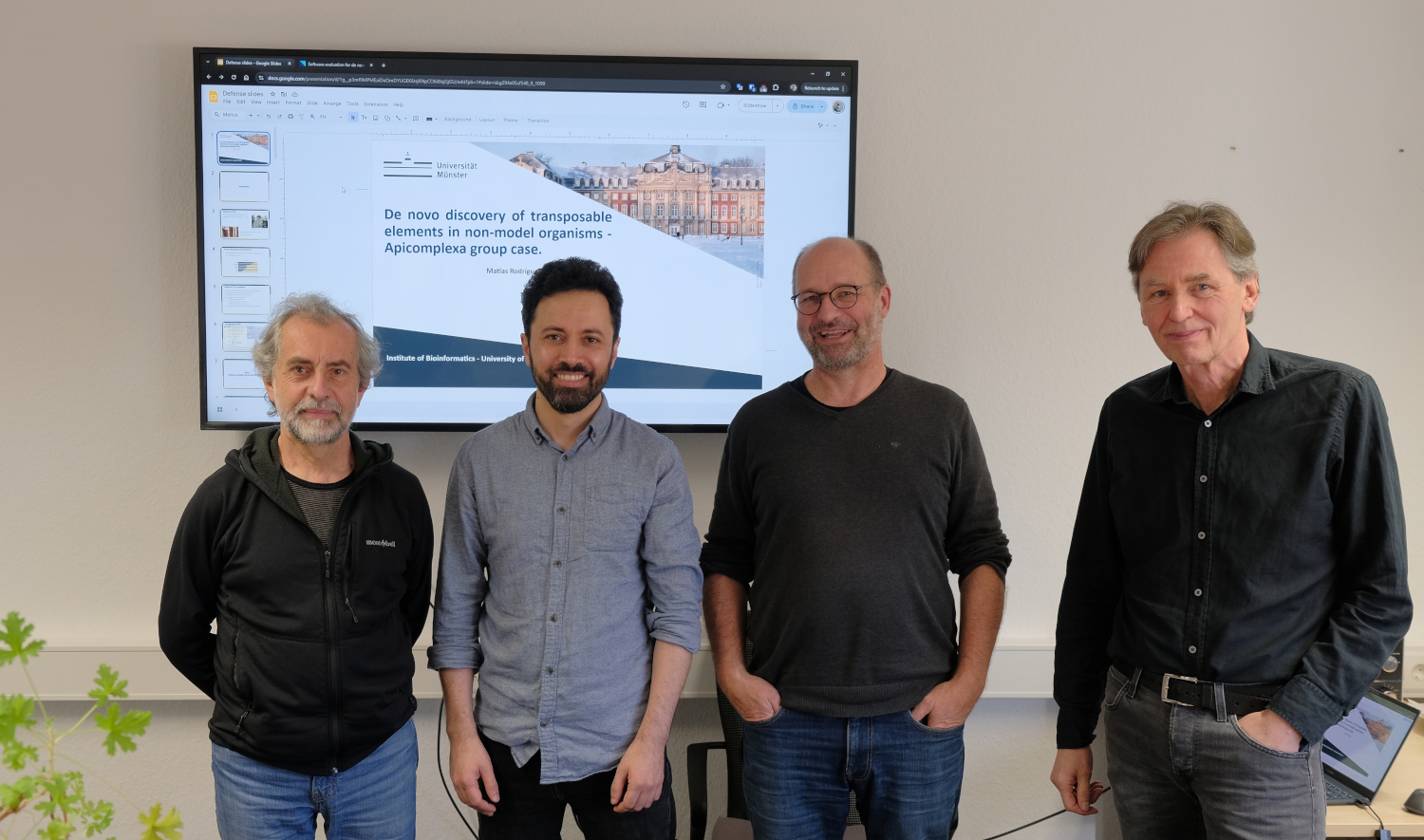
Congratulations to Matías Rodríguez for the succesful defense of his
PhD thesis.
2024-11-04

"miR-193b-5p and miR-374b-5p Are Aberrantly Expressed in Endometriosis
and Suppress Endometrial Cell Migration In Vitro" by Caroline Frisendahl, Eberhard
Korsching et al. has been published in Biomolecules.
View
2024-10-01

Congratulations to Felix Manske for the succesful defense of his
PhD thesis.
2024-06-13

"Application of a new data management system to the study of the
gut microbiome of children who are small for their gestational
age" by Manske et al. has been uploaded to bioRxiv.
View
2024-06-07
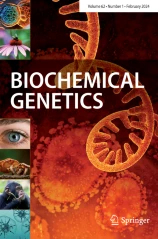
"Interplay of miR-542, miR-126, miR-143 and miR-26b with PI3K-Akt
is a Diagnostic Signal and Putative Regulatory Target in
HPV-Positive Cervical Cancer" by Akram Rahimi-Moghaddam, Nassim
Ghorbanmehr, Sedigheh Gharbi, Fatemeh Nili and Eberhard Korsching
has been published by Biochemical Genetics
View
2023-08-28

"The complete sequence of a human Y chromosome” by T2T Consortium
has been published by Nature
View
Dipl. Inf. Norbert Grundmann

The biggest communication problem is we do not listen to understand
- we listen to reply
To see more info - please select a topic of interest
As I started my work at this Institute I began to learn more
about genetics and the underlaying software. For different
projects I designed and implemented tools,
like SCA for codon
analsis and TinT
for time evaluation of transpositions. A big project was and
is the uorf database uORFdb. One thing that I have
learned: software is only as good as the team that created it.
Maybe we will work on the road together? :-)
(2024) Development of a new data management system for the
study of the gut microbiome of children who are small for
their gestational age
Microbiome studies aim to answer the following questions:
which organisms are in the sample and what is their impact on
the patient or the environment? To answer these questions,
investigators have to perform comparative analyses on their
classified sequences based on the collected metadata, such as
treatment, condition of the patient, or the environment. The
integrity of sequences, classifications, and metadata is
paramount for the success of such studies. Still, the area of
data management for the preliminary study results appears to
be neglected.
(2024) NewickTreeModifier: a simple web page to prune and
modify Newick trees
Large-scale selection analyses of protein-coding sequences and
phylogenetic tree reconstructions require suitable trees in
Newick format. We developed the NewickTreeModifier, a simple
web-based tool to trim and modify Newick trees for such
analyses. The users can choose provided master trees or upload
a tree to prune it to selected species provided in FASTA,
NEXUS, or PHYLIP sequence format with an internal converter, a
simple species list, or directly determined from a checklist
interface of the master trees. Plant, insect, and vertebrate
master trees comprise the maximum number of species in an
up-to-date phylogenetic order directly transferable to the
pruned Newick outfile. NTM is available at
https://retrogenomics.uni-muenster.de/tools/ntm.
(2022) Comparison of circulating tumor cells and AR-V7 as
clinical biomarker in metastatic castration-resistant prostate
cancer patients
(2022) paPAML: An Improved Computational Tool to Explore
Selection Pressure on Protein-Coding Sequences
paPAML simplifies, amplifies, and accelerates selection
analyses via parallel processing, including detection of
negatively selected sites. paPAML compiles results of site,
branch, and branch-site models and detects site-specific
negative selection with the output of a codon list labelling
significance values. The tool simplifies selection analyses
for casual and inexperienced users and accelerates computing
speeds up to the number of allocated computer threads
(2022) The new uORFdb: integrating literature, sequence, and
variation data in a central hub for uORF research
Upstream open reading frames (uORFs) are initiated by AUG or
near-cognate start codons and have been identified in the
transcript leader sequences of the majority of eukaryotic
transcripts. Functionally, uORFs are implicated in downstream
translational regulation of the main protein coding sequence
and may serve as a source of non-canonical peptides. Genetic
defects in uORF sequences have been linked to the development
of various diseases, including cancer. To simplify
uORF-related research, the initial release of uORFdb in 2014
provided a comprehensive and manually curated collection of
uORF- elated literature. Here, we present an updated
sequence-based version of uORFdb, accessible at
https://www.bioinformatics.uni-muenster.de/tools/uorfdb. The
new uORFdb enables users to directly access sequence
information, graphical displays, and genetic variation data
for over 2.4 million human uORFs. It also includes sequence
data of >4.2 million uORFs in 12 additional species. Multiple
uORFs can be displayed in transcript- and
reading-frame-specific models to visualize the translational
context. A variety of filters, sequence-related information,
and links to external resources (UCSC Genome Browser, dbSNP,
ClinVar) facilitate immediate in-depth analysis of individual
uORFs. The database also contains uORF-related somatic
variation data obtained from whole-genome sequencing (WGS)
analyses of 677 cancer samples collected by the TCGA
consortium.
(2022) paPAML: An Improved Computational Tool to Explore
Selection Pressure on Protein-Coding Sequences
Evolution is change over time. Although neutral changes
promoted by drift effects are most reliable for phylogenetic
reconstructions, selection-relevant changes are of only
limited use to reconstruct phylogenies. On the other hand,
comparative analyses of neutral and selected changes of
protein-coding DNA sequences (CDS) retrospectively tell us
about episodic constrained, relaxed, and adaptive
incidences. The ratio of sites with nonsynonymous (amino acid
altering) versus synonymous (not altering) mutations directly
measures selection pressure and can be analysed by using the
Phylogenetic Analysis by Maximum Likelihood (PAML) software
package. We developed a CDS extractor for compiling
protein-coding sequences (CDS-extractor) and parallel PAML
(paPAML) to simplify, amplify, and accelerate selection
analyses via parallel processing, including detection of
negatively selected sites. paPAML compiles results of site,
branch-site, and branch models and detects site-specific
negative selection with the output of a codon list labelling
significance values. The tool simplifies selection analyses
for casual and inexperienced users and accelerates computing
speeds up to the number of allocated computer threads. We then
applied paPAML to examine the evolutionary impact on a new
GINS Complex Subunit 3 exon, and neutrophil-associated as well
as lysin and apolipoprotein genes. Compared with codeml (PAML
version 4.9j) and HyPhy (HyPhy FEL version 2.5.26), all paPAML
test runs performed with 10 computing threads led to identical
selection pressure results, whereas the total selection
analysis via paPAML, including all model comparisons, was
about 3 to 5 times faster than the longest running codeml
model and about 7 to 15 times faster than the entire
processing time of these codeml runs.
(2021) Presence of CTCs and its prognostic potential compared
to AR-V7 expression in mCRPC undergoing androgen-deprivation
therapy.
(2020) GenoTypeMapper: graphical genotyping on genetic and
sequence-based maps - published by Plant Methods
(2020) The multi-comparative 2-n-way genome suite
To effectively analyze the increasing amounts of available
genomic data, improved comparative analytical tools that are
accessible to and applicable by a broad scientific community
are essential. We built the "2-n-way" software suite to
provide a fundamental and innovative processing framework for
revealing and comparing inserted elements among various
genomes. The suite is comprised of two user-friendly web-based
modules. The 2-way module generates pairwise whole-genome
alignments of target and query species. The resulting genome
coordinates of blocks (matching sequences) and gaps (missing
sequences) from multiple 2-ways are then transferred to the
n-way module and sorted into projects, where user-defined
coordinates from reference species are projected to the
block/gap coordinates of orthologous loci in query species to
provide comparative information about presence (blocks) or
absence (gaps) patterns of targeted elements over many entire
genomes and phylogroups. Thus, the "2-n-way" software suite is
ideal for performing multi-directional,
non-ascertainment-biased screenings to extract all possible
presence/absence data of user-relevant elements in orthologous
sequences. To highlight its applicability and versatility, we
used 2-n-way to expose ~100 lost introns in vertebrates,
analyzed thousands of potential phylogenetically informative
bat and whale retrotransposons, and novel human exons as well
as thousands of human polymorphic retrotransposons.
(2020) Combinatorial expression of androgen receptor splice
variants: No predictive value in castration-resistant prostate
cancer patients treated with enzalutamide (enza) or
abiraterone (abi)
(2020) MetaGenomic analysis of short and long reads
Identifying single organisms in environmental samples is one
of the key tasks of metagenomics. During the last few years,
third generation sequencing technologies have enabled
researchers to sequence much longer molecules, but at the
expense of sequencing accuracy. Thus, new algorithms needed to
be developed to cope with this new type of data. With this in
mind, we developed a tool called MetaG. An intuitive web
interface makes the software accessible to a vast range of
users, including those without extensive bioinformatic
expertise. Evaluation of MetaG’s performance showed that it
makes nearly perfect classifications of viral isolates using
simulated short and long reads. MetaG also outperformed
current state-of-the-art algorithms on data from targeted
sequencing of the 16S and 28S rRNA genes. Since MetaG’s output
is also supplemented with information about hosts and
antibiotic resistances of pathogens, we expect it to be
especially useful to the healthcare sector. Moreover, the
outstanding accuracy of the taxonomic assignments will make
MetaG a serious alternative for anyone working with
metagenomic sequences.
(2019) NanoPipe: a web server for nanopore MinION sequencing
data analysis - published in GigaScience, giy169, doi:
10.1093/gigascience/giy169
Freely available NanoPipe software allows effortless and
reliable analysis of MinION sequencing data for experienced
bioinformaticians, as well for wet-lab biologists with minimum
bioinformatics knowledge. Moreover, for the latter group, we
describe the basic algorithm necessary for MinION sequencing
analysis from the first to last step.
(2015) GPAC - Genome Presence/Absence Compiler: A Web
Application to comparatively visualize multiple genome-level
changes - published in Oxford Journals
Our understanding of genome-wide and comparative sequence
information has been broadened considerably by the databases
available from the University of California Santa Cruz (UCSC)
Genome Bioinformatics Department. In partic- ular, the
identification and visualization of genomic sequences, present
in some species but absent in others, led to fundamental
insights into gene and genome evolution. However, the UCSC
tools currently enable one to visualize orthologous genomic
loci for a range of species in only a single locus. For
large-scale comparative analyses of such presence/absence
patterns a multilocus view would be more desirable. Such a
tool would enable us to compare thou- sands of relevant loci
simultaneously and to resolve many different questions about,
for example, phylogeny, specific aspects of genome and gene
evolution, such as the gain or loss of exons and introns, the
emergence of novel transposed elements, nonprotein-coding
RNAs, and viral genomic particles. Here, we present the first
tool to facilitate the parallel analysis of thousands of
genomic loci for cross-species presence/absence patterns based
on multiway genome alignments. This genome presence/absence
compiler uses annotated or other compilations of coordinates
of genomic locations and compiles all presence/absence
patterns in a flexible, color-coded table linked to the
individual UCSC Genome Browser alignments. We provide examples
of the versatile information content of such a screening
system especially for 7SL-derived transposed elements, nuclear
mitochondrial DNA, DNA transposons, and miRNAs in primates
(2011) Origin of the 1918 pandemic H1N1 influenza A virus as
studied by codon usage patterns and phylogenetic analysis -
published in Advance November 10, 2010,
doi:10.1261/rna.2395211
Origin of the 1918 pandemic H1N1 influenza A virus as studied
by codon usage patterns and phylogenetic analysis DARISUREN
ANHLAN, 1 NORBERT GRUNDMANN, 2 WOJCIECH MAKALOWSKI,2 STEPHAN
LUDWIG, 1 and CHRISTOPH SCHOLTISSEK 3 1 Institute of Molecular
Virology (IMV), Centre of Molecular Biology of Inflammation
(ZMBE), University of Mu¨nster, 48149 Mu¨ nster, Germany 2
Institute of Bioinformatics, University of Mu¨nster, 48149
Mu¨nster, Germany 3 St. Jude Children’s Research Hospital,
Memphis, Tennessee 38105, USA ABSTRACT The pandemic of 1918
was caused by an H1N1 influenza A virus, which is a negative
strand RNA virus; however, little is known about the nature of
its direct ancestral strains. Here we applied a broad genetic
and phylogenetic analysis of a wide range of influenza virus
genes, in particular the PB1 gene, to gain information about
the phylogenetic relatedness of the 1918 H1N1 virus. We
compared the RNA genome of the 1918 strain to many other
influenza strains of different origin by several means,
including relative synonymous codon usage (RSCU), effective
number of codons (ENC), and phylogenetic relationship. We
found that the PB1 gene of the 1918 pandemic virus had ENC
values similar to the H1N1 classical swine and human viruses,
but different ENC values from avian as well as H2N2 and H3N2
human viruses. Also, according to the RSCU of the PB1 gene,
the 1918 virus grouped with all human isolates and
‘‘classical’’ swine H1N1 viruses. The phylogenetic studies of
all eight RNA gene segments of influenza A viruses may
indicate that the 1918 pandemic strain originated from a H1N1
swine virus, which itself might be derived from a H1N1 avian
precursor, which was separated from the bulk of other avian
viruses in toto a long time ago. The high stability of the
RSCU pattern of the PB1 gene indicated that the integrity of
RNA structure is more important for influenza virus evolution
than previously thought.
(2010) A Novel Web-Based TinT Application and the Chronology
of the Primate Alu Retroposon Activity
DNA sequences afford access to the evolutionary pathways of
life. Particularly mobile elements that constantly co-evolve
in genomes encrypt recent and ancient information of their
host’s history. In mammals there is an extraordinarily
abundant activity of mobile elements that occurs in a dynamic
succession of active families, subfamilies, types, and
subtypes of retroposed elements. The high frequency of
retroposons in mammals implies that, by chance, such elements
also insert into each other. While inactive elements are no
longer able to retropose, active elements retropose by chance
into other active and inactive elements. Thousands of such
directional, element-in-element insertions are found in
present-day genomes. To help analyze these events, we
developed a computational algorithm (Transpositions in
Transpositions, or TinT) that examines the different
frequencies of nested transpositions and reconstructs the
chronological order of retroposon activitie
(2009) TEclass: a tool for automated classification of unknown
eukaryotic transposable elements
The large number of sequenced genomes required the development
of software that reconstructs the consensus sequences of
transposons and other repetitive elements. However, the
available tools usually focus on the accurate identification of
raw repeats and provide no information about the taxonomic
position of the reconstructed consensi. TEclass is a tool to
classify unknown transposable elements into their four main
functional categories, which reflect their mode of
transposition: DNA transposons, long terminal repeats (LTRs),
long interspersed nuclear elements (LINEs) and short
interspersed nuclear elements (SINEs). TEclass uses machine
learning support vector machine (SVM) for classification based
on oligomer frequencies. It achieves 90–97% accuracy in the
classification of novel DNA and LTR repeats, and 75% for LINEs
and SINEs.
| 2008 - now | Design and implement biological software, setup and admininstrate Unix servers and external software at Institute of Bioinformatics (UKM) in Münster |
| 2004 - 2007 | Digitalize, store and provide access to incoming and outgoing letters. Write Java and PL/1 applications and connect host systems and Java environments at LVM in Münster |
| 2000 - 2004 | Consultant for Java applications in enterprise environments like CICS, IMS, MQ-Series at SerCon (now IBM) in Dortmund. |
| 1994 - 2000 | Study informatics at RWTH in Aachen. |
| 1996 - 1998 | Develop database applications for banks in Sybase/SQL at CsG in Aachen. |
| 1994 - 1996 | Administrator at Institute for Information Systems (I5) at RWTH in Aachen. |
| 1990 - 1995 | Design and implement retrival software in C (with database Progress and Interactive Unix) for tools like cutters and others used in industrial production at Cim Source GmbH in Aachen. |
| 1987 - 1990 | Training for "Mathematical Technical Assistent" at FH for Economy in Aachen. |
| 1984 - 1985 | Study physics at LMU in Munic. |
I am very interested in the Unix
System FreeBSD (and its
neighbours like Open- and NetBSD) and happy that many of our
servers are running BSD :-) I know *BSD needs sometimes more
"hands-on", installation and background knowledge, but the
result is a small, functional and stable system. Even on
desktops! And it works!! :) I like this centric (but also
community) approach very much. Even that I like and use *BSD
systems I am not an enemy of others. But I think people, who
claim that *BSD does not work, never took time to use it! I
made experiences with Linux, Windows and OsX - and that is the
reason why I switched completely to *BSD :) And by the way,
there are many interesting operating systems available so far,
which are very impressive and definitly worth to check them out
- and maybe to switch over :)
Following a table with these operating systems
| FreeBSD | FreeBSD is an operating system used to power modern servers, desktops, and embedded platforms. A large community has continually developed it for more than thirty years. Its advanced networking, security, and storage features have made FreeBSD the platform of choice for many of the busiest web sites and most pervasive embedded networking and storage devices. |
| GhostBSD | GhostBSD provides a simple desktop-oriented operating system based on FreeBSD with MATE, OpenRC and OS packages for simplicity. GhostBSD has a selection of commonly used software preinstalled and required to start using it to its full potential. |
| hello | helloSystem is a desktop system for creators with a focus on simplicity, elegance, and usability. Its design follows the "Less, but better" philosophy. It is intended as a system for "mere mortals", welcoming to switchers from the Mac. FreeBSD is used as the core operating system. Please refer to https://github.com/helloSystem/hello if you would like to learn more about the ideas and principles behind hello. |
| ravynOS | ravynOS (previously called airyxOS) is an open-source operating system based on FreeBSD, CMU Mach, and Apple open-source code that aims to be compatible with macOS applications and has no hardware restrictions. |
| DragonFly BSD | DragonFly belongs to the same class of operating systems as other BSD-derived systems and Linux. It is based on the same UNIX ideals and APIs and shares ancestor code with other BSD operating systems. DragonFly provides an opportunity for the BSD base to grow in an entirely different direction from the one taken in the FreeBSD, NetBSD, and OpenBSD series. |
| NetBSD | NetBSD is a free, fast, secure, and highly portable Unix-like Open Source operating system. It is available for a wide range of platforms, from large-scale servers and powerful desktop systems to handheld and embedded devices. |
| OpenBSD | The OpenBSD project produces a FREE, multi-platform 4.4BSD-based UNIX-like operating system. Our efforts emphasize portability, standardization, correctness, proactive security and integrated cryptography. As an example of the effect OpenBSD has, the popular OpenSSH software comes from OpenBSD. |
| HAIKU | Haiku is an open-source operating system that specifically targets personal computing. Inspired by the BeOS, Haiku is fast, simple to use, easy to learn and yet very powerful. |
| Illumos | illumos is a consolidation of software that forms the core of an Operating System. It includes the kernel, device drivers, core system libraries, and utilities. It is the home of many technologies include ZFS, DTrace, Zones, ctf, FMA, and more. We pride ourselves on having a stable, highly observable, and technologically different system. In addition, illumos traces it roots back through Sun Microsystems to the original releases of UNIX and BSD. see also OmniOS and openindiana. |
| ArcaOS | Arca Noae brings OS/2 into the 21st Century |
| MorphOS | MorphOS is a lightweight, highly efficient and flexible media-centric operating system. |
| MenuetOS | MenuetOS is an operating system for PC, written fully in assembly language (64bit and 32bit). Features include pre-emptive and real-time multitasking with multiprocessor support and Graphical User Interface. Menuet64 is released under License and Menuet32 under GPL. Menuet supports both 64 and 32bit x86 assembly programming for smaller, faster and less resource hungry applications. |
| ReactOS | Imagine running your favorite Windows applications and drivers in an open-source environment you can trust. That's the mission of ReactOS! |
| Qubes OS | Qubes OS is a free and open-source, security-oriented operating system for single-user desktop computing. Qubes OS leverages Xen-based virtualization to allow for the creation and management of isolated compartments called qubes. |
| Redox | Redox is a Unix-like Operating System written in Rust, aiming to bring the innovations of Rust to a modern microkernel and full set of applications. |
| OpenVMS | VMS Software, Inc. is migrating OpenVMS and its layered products to the industry standard x86_64 architecture, to help customers protect their investment in OpenVMS infrastructure, especially in virtualized environments and in the cloud. OpenVMS E9.2 is available to all VMS Software, Inc. customers as their valuable feedback will contribute to the quality of the first production release, V9.2. |
| SerenityOS | SerenityOS is a love letter to '90s user interfaces with a custom Unix-like core. It flatters with sincerity by stealing beautiful ideas from various other systems. |
| Chimera Linux | A modern, general-purpose non-GNU Linux distribution. Chimera aims to be a clean and usable general-purpose Linux OS. In order to get there, it tries to liberate itself from the common baggage of most Linux-based systems and do its own thing. Software is sourced from different places and sometimes written from scratch. The FreeBSD tools were chosen for their high quality code and solid feature set. Some source code is also taken from NetBSD and OpenBSD. (nice!! :-)) |
| KaOS |
Moving away from proprietary Operating Systems to open
source options (Linux-based, BSD based, Solaris based) is
about wanting freedom and choice in almost all cases. But
should any such Operating System or Distribution not make
some choices of what it believes is the best fit? KaOS sees
a lack of focus in that respect. To create the highest
quality Distribution possible, there needs to be a focus to
make sure the user gets the best possible for whatever
choice they made. It simply is not possible to package any
and all to work perfect for every Desktop Environment or
Toolkit. My thoughts: Interesting that this product thinks about using using Illumnos kernel - woa! - away from pingiun based systems! I would like to test it :-) "though the Illumos kernel is under constant evaluation, and a future switch is a wish" |
| KolibriOS | KolibriOS is a tiny yet incredibly powerful and fast operating system. This power requires only a few megabyte disk space and 8MB of RAM to run. Kolibri features a rich set of applications that include word processor, image viewer, graphical editor, web browser and well over 30 exciting games. Full FAT12/16/32 support is implemented, as well as read-only support for NTFS, ISO9660 and Ext2/3/4. Drivers are written for popular sound, network and graphics cards. |
| Syllable | Welcome on the new web site for the Syllable operating system project. Syllable is a unique, modern and complete operating system that is easy to use, powerful, lightweight and extraordinarily fast and responsive. It has its own, tightly integrated kernel, file system, Graphical User Interface and applications, and also supports many cross-platform open-source programs. Syllable is designed in the tradition of the Amiga and BeOS, but built using many parts from the GNU project and Linux. It excels at interactive use. Syllable Server is a matching, small and efficient, companion Linux system. It uses the Linux kernel and is compatible with Linux software, but is otherwise built to be as similar as possible to the primary Syllable system. Syllable makes better use of your hardware by reducing waste in the software. It can make a new or tiny computer extremely fast and an old computer usable again. |
| AROS | The AROS Research Operating System is a lightweight, efficient, and flexible desktop operating system, designed to help you make the most of your computer. It's an independent, portable and free project, aiming at being compatible with AmigaOS at the API level (like Wine, unlike UAE), while improving on it in many areas. The source code is available under an open source license, which allows anyone to freely improve upon it. |
| Friend OS |
Friend OS is a unique system that operates quite differently
from the usual cloud-based setups. Instead of simply
streaming or accessing a remote computer in the cloud, it
does something fascinating. Here's how it works: Imagine Friend OS as a versatile software system that you can use on your own device, like your smartphone or computer. It's not just a window into a distant computer; it's like having a whole new computer right there on your device. |
| Essence OS | A desktop operating system built from scratch, for control and simplicity. |
| HelenOS | HelenOS is a portable microkernel-based multiserver operating system designed and implemented from scratch. It decomposes key operating system functionality such as file systems, networking, device drivers and graphical user interface into a collection of fine-grained user space components that interact with each other via message passing. A failure or crash of one component does not directly harm others. HelenOS is therefore flexible, modular, extensible, fault tolerant and easy to understand. |
| Slackware Linux |
The Slackware Linux Project
Interestingly, this "old" Linux derivate is still alive!
Keep the unix feeling high!
Hey folks! It's been a long time, but as usual we had to
get everything just exactly perfect, and you just can't
rush that. We are very happy to announce the availability
of the new Slackware 15.0 stable release. There have been
way too many changes to even begin to cover them here, but
for our dedicated user base suffice to say that you'll
find things modern but also familiar. We've gone with the
5.15.19 Linux kernel (part of the 5.15.x kernel series
that will be getting long-term support from the kernel
developers). You'll also enjoy a refreshed desktop
experience including the KDE Plasma 25th Anniversary
Edition with support for Wayland sessions.
|
| VISOPSYS | Visopsys is an alternative operating system for PC compatible computers. In development since 1997, this system is small, fast, and open source. It features a simple but functional graphical interface, pre-emptive multitasking, and virtual memory. Though it attempts to be compatible in a number of ways, Visopsys is not a clone of any other operating system. You can demo the distribution from a 'live' USB stick, CD/DVD, or floppy disk |
And have a look on following stories
FreeBSD 15 trims legacy fat and revamps how OS is built
FreeBSD 15.0-RELEASE arrived this week, the latest release of
the Unix world's leading alternative to Linux. As well as
numerous bug fixes and upgrades to many of its components, the
major changes in this version are reductions in the number of
platforms the OS supports, and in how it's built and how its
component software is packaged.
FreeBSD 15 has significantly reduced support for 32-bit
platforms. Compared to FreeBSD 14 in 2023, there are no longer
builds for x86-32, POWER, or ARM-v6. As the release notes put
it
FreeBSD Running Lubuntu? Unexpected Combo That Works
From Cloud Chaos to FreeBSD Efficiency
A few months ago, a client asked me to take care of their Kubernetes cluster (hosted on AWS and GCP). In their opinion, the costs were exorbitantly high for relatively simple and lean websites. Sure, they had many visits, but nothing too excessive development-wise.
I kindly declined. Unfortunately, their situation is all too common these days: they hired developers accustomed to working that way, convinced that a system administrator is now unnecessary because “the cloud has infinite potential.” They were used to considering optimization as secondary because “we have infinite power” (and this is already a spoiler for the ending).
Being open to dialogue and new experiences, they asked for my opinion on the matter. We talked for a while, and I explained that, in my view, for the type of setup they had (standard, with various replicas and variants, but primarily based on two platforms), it didn’t make sense. I saw it as complicating things. An over-engineering of something simple. Like taking a cruise ship to cross a river.
They then asked me to create something simple that would serve as a development server and for backups, to understand what kind of solution I had in mind.
A few months ago, a client asked me to take care of their Kubernetes cluster (hosted on AWS and GCP). In their opinion, the costs were exorbitantly high for relatively simple and lean websites. Sure, they had many visits, but nothing too excessive development-wise.
I kindly declined. Unfortunately, their situation is all too common these days: they hired developers accustomed to working that way, convinced that a system administrator is now unnecessary because “the cloud has infinite potential.” They were used to considering optimization as secondary because “we have infinite power” (and this is already a spoiler for the ending).
Being open to dialogue and new experiences, they asked for my opinion on the matter. We talked for a while, and I explained that, in my view, for the type of setup they had (standard, with various replicas and variants, but primarily based on two platforms), it didn’t make sense. I saw it as complicating things. An over-engineering of something simple. Like taking a cruise ship to cross a river.
They then asked me to create something simple that would serve as a development server and for backups, to understand what kind of solution I had in mind.
User Friendly? GhostBSD vs Ubuntu - Download & Install
Interesting that installation of Ubuntu 24.04 did not to work, but GhostBSD 24.04 worked like a charm :-)
Interesting that installation of Ubuntu 24.04 did not to work, but GhostBSD 24.04 worked like a charm :-)
Case Study: Maintaining the World’s Fastest Content Delivery
Network at Netflix on FreeBSD
For more than 25 years, Beckhoff Automation has used Windows as
the exclusive operating system for its products. By adopting
FreeBSD, they decreased their operating system footprint over
sevenfold. Beckhoff came for FreeBSD's permissive license and
stayed for its smaller footprint.
Ampere in the Wild: How FreeBSD Employs Ampere Arm64 Servers in
the Data Center (Jan 2024)
FreeBSD vs Linux in 2022
Why (and how) we are migrating (many of) our servers from Linux to
FreeBSD - it is new from Feb 2022!! :-)
Technical reasons to choose FreeBSD over GNU/Linux
So what is Linux - even if the founder does not like Debian or
Ubuntu? - Why Linus Torvalds doesn't use Ubuntu or Debian
Linux != Linux?! Here a (more or less subjective) view from a
Linux person: "Why Ubuntu is the Devil and Why So Many No Longer
Use It"
A nice look back - I liked Solaris in much ways :) "OpenIndiana
2020.10d"
12 Reasons to Leave Windows, macOS or Linux - A Vocal Examination
The good old time :) SUN Ultra 24 - FreeBSD 13 & CDE
Deep Diving Into the Strengths of FreeBSD
MacOS to FreeBSD migration a.k.a why I left macOS
Another nice and new approach of an operating system: HAIKU - with
some components based on FreeBSD
2025-12-11 11:39



